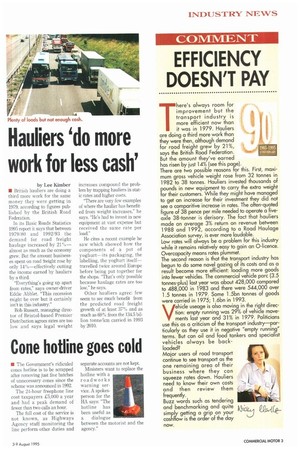Hauliers 'do more work for less cash'
Page 5

If you've noticed an error in this article please click here to report it so we can fix it.
by Lee Kimber • British hauliers are doing a third more work for the same money they were getting in 1979, according to figures published by the British Road Federation.
In its Basic Roads Statistics 1995 report it says that between 1979/80 and 1992/93 the demand for road freight haulage increased by 21%— almost as much as the economy grew. But the amount businesses spent on road freight rose by only 14%—effectively cutting the income earned by hauliers by a third.
"Everything's going up apart from rates," says owner-driver Eddie Abblet. "This recession might be over but it certainly isn't in this industry."
Bob Russett, managing director of Bristol-based Premier Distribution agrees rates are too low and says legal weight increases compound the problem by trapping hauliers in static rates and higher costs.
"There are very few examples of where the haulier has benefited from weight increases," he says. "He's had to invest in new equipment at vast expense but received the same rate per load."
He cites a recent example he saw which showed how the components of a pot of yoghurt—its packaging, the labelling, the yoghurt itself— travelled twice around Europe before being put together for the shops. "That's only passible because haulage rates are too low," he says.
Other hauliers agree: few seem to see much benefit from the predicted road freight growth of at least 37% and as much as 69% from the 134.5 billion tonne/km carried in 1993 by 2010.
































































































